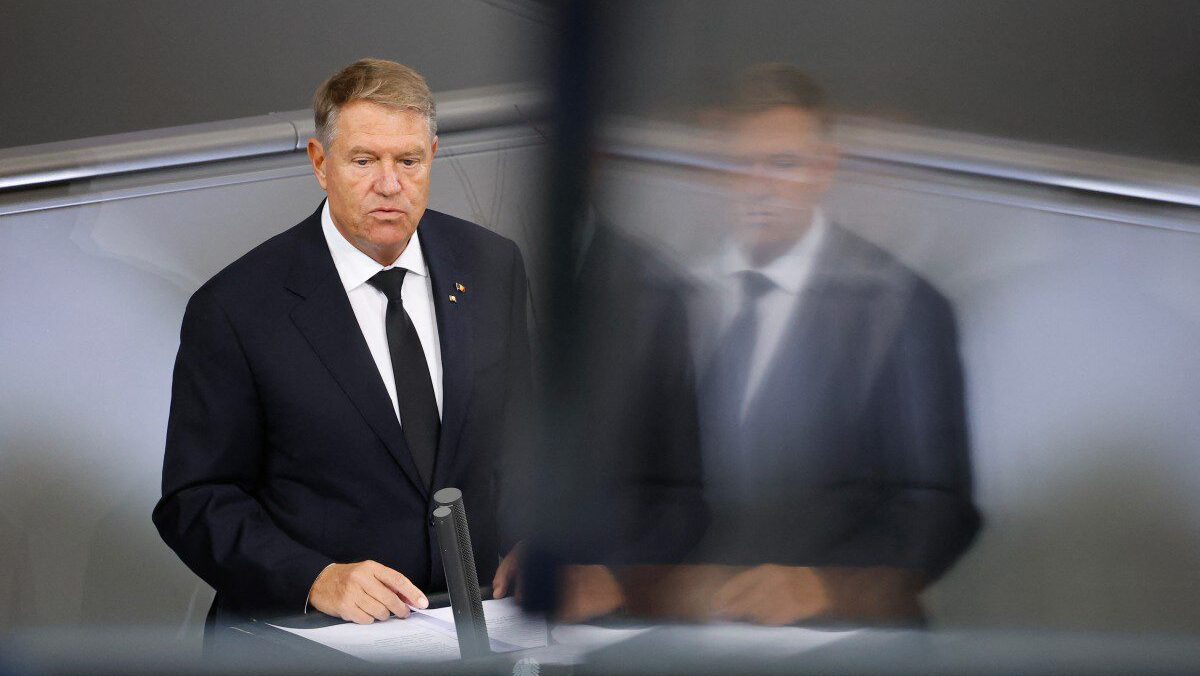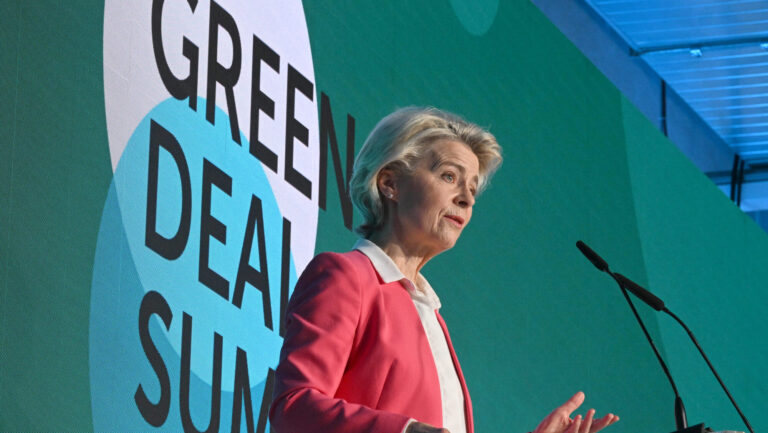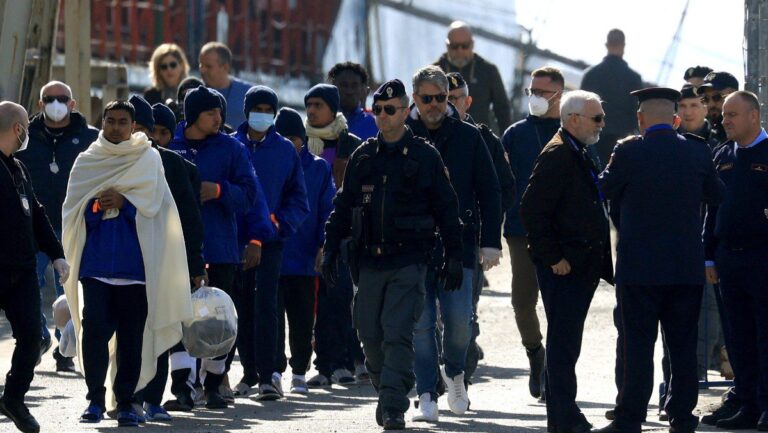After resisting pressure from opposition parties and protesters for months, Romanian President Klaus Iohannis finally gave in and resigned on Monday, February 10th. Despite entering the presidential palace in 2014 as a symbol of hope for fixing the country’s corrupt post-communist political establishment, Iohannis now leaves as the least popular president in Romanian history—and the first ever to resign.
“Today, in the Romanian Parliament, the procedure for suspending the President was set in motion,” Iohannis said on Monday. “In a few days, my suspension will be voted on in the Parliament and Romania will enter a crisis.”
In order to save Romania and Romanian citizens from this crisis, from this useless and negative development, I am resigning as President of Romania.
At the same time, Iohannis stressed that the parliamentary procedure was unfounded, “because I never—I repeat, never—violated the Constitution.”
TOP: Iohannis after he orchestrated the annulment of the elections
— iosefinapascal (@iosefinaoficial) February 11, 2025
BOTTOM: Iohannis when he announced his resignation
Notice the flags… 👀
Romania WON! pic.twitter.com/F55IpKGwOG
The Constitutional Court (CCR) accepted Iohannis’ resignation on Tuesday and declared that Senate president Ilie Bolojan, leader of Iohannis’ centrist PNL (EPP), will take over as interim president until the May elections.
The decision marks the beginning of a new stage in the country’s escalating political crisis. The turmoil began after the CCR annulled last year’s presidential election after nationalist candidate Călin Georgescu won the first round. The court cited allegations from the secret services, facilitated by Iohannis, of Russian interference.
Despite his term expiring in December last year, Iohannis refused to leave the presidential palace as the constitution has no clear provisions for such an unprecedented situation.
However, the law says that a president’s term can only be extended by parliamentary vote (which never happened) and that, in the event of a vacancy due to death or resignation, the post shall be temporarily filled by the president of the Senate. This led to opposition parties on both sides of the political divide declaring Iohannis “illegitimate” and initiating a parliamentary procedure to suspend (impeach) him.
The debate in parliament about the suspension was scheduled for Tuesday, February 11th. Although the opposition parties would have needed a dozen MPs from the ruling three-party coalition to join their initiative, the fact that Iohannis decided to resign ahead of the vote suggests that they would have had a good chance of succeeding.
Just one week ago, Iohannis decisively ruled out resigning, at a defense summit in Paris, and said his decision to stay on as interim president until the election was the only right choice under the constitution.
Iohannis’ ten years at the head of the country were plagued by numerous scandals which contributed to his abysmal approval ratings that nearly hit single digits in the last couple of weeks. His ties to several USAID and Soros-linked foreign NGOs have also resurfaced. These included him being on the board of the European Council of Foreign Relations (ECFR) until journalists called out this conflict of interest prohibited by the Constitution.
Iohannis also spent his last day in office decorating three judges of the constitutional court who overturned the elections, all of whom have close ties to Freedom House and other USAID-funded NGOs.
The president announced his departure as hundreds of protesters gathered in front of the presidential palace. The demonstrators demanded his resignation and for the cancelled runoffs to be held, instead of repeating both rounds in three months. The celebrating crowd broke through the barriers the police had to use tear gas to stop them before arresting several of them.
The protest was just the latest in a months-long series of massive demonstrations involving up to 200,000 people following the annulled elections. They were mostly organized by the three right-wing nationalist opposition parties united behind Georgescu—AUR (ECR), SOS Romania, and POT—but also supported by the pro-EU liberal USR (Renew).
USR leader Elena Lasconi, who qualified for the runoffs along with Georgescu, has accused the ruling establishment parties—the socialist PSD (S&D) and the PNL (EPP)—of “destroying democracy” by pushing for the court to invalidate the vote.
AUR leader George Simion, vice-president of the ECR party, said while Iohannis’ resignation is a clear victory, his party will continue to demand the resumption of the canceled elections as well as a vote of no confidence against the government, which was formed only a few weeks ago.
That vote will likely fail, however, as Lasconi already said her party would not join the initiative this time for the sake of stability, but demanded that Iohannis should at least tell the country why the elections were really canceled.
While it is proven that Georgescu failed to disclose spending nearly €1 million on a TikTok campaign—which alone could be grounds for barring him from running in the new elections—the allegations of Russian interference that led to the CCR decision remain unproven. Besides, it was revealed that the primary campaign that the secret services attributed to Russia was in fact paid by Iohannis’ PNL as a part of a likely ‘divide and conquer’ strategy which accidentally turned out too well.
I've been saying this for weeks.
— Tamás Orbán (@TamasOrbanEC) February 7, 2025
PNL, a member of @vonderleyen's EPP ran an undisclosed TikTok campaign to divert votes from PSD (S&D), and accidentally pushed @CG_Romania to first place. Then they canceled the election blaming Russia.
When will the @EPPGroup take responsibility? https://t.co/7rtYrausK7






